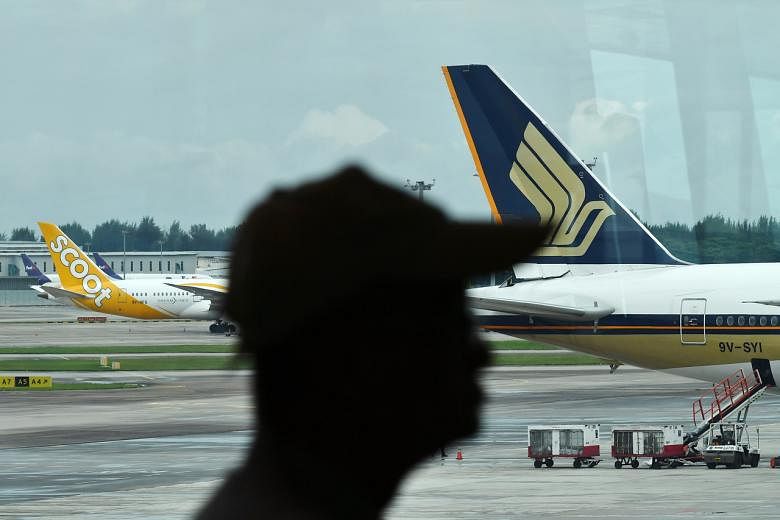SINGAPORE - The air inside aeroplanes is as clean as that in operating rooms, but of greater concern is the risk of people getting infected by a sick person sitting close to them or through objects such as toilet door handles which the sick person has touched.
As such, airlines should take extra care to prevent those who are sick from boarding, said experts. Local airlines Singapore Airlines (SIA) and Scoot have implemented pre-departure temperature checks for passengers on flights to mainland China, on top of checks on arriving passengers carried out by Changi Airport.
Passengers should avoid non-essential travel to affected areas and also practise basic hygiene to protect themselves from other viruses such as the common flu.
Dr Wong Sin Yew from the Infectious Disease Specialists Group said: "The concern is not circulating air, but proximity to the unwell people who might be coughing and sneezing.
"It's an issue of social responsibility - if you are ill, then you shouldn't fly... The focus should be also on airlines to ensure that anyone who is sick should not be allowed to board the aircraft."
The International Air Transport Association's medical adviser, Dr David Powell, told The Straits Times that the risk of contracting a virus on a plane is lower than the risk from daily activities such as going to a shopping centre or going to work in an office.
This is because the modern aircraft cabin has its air changed many times, more frequently than offices or shops, said Dr Powell. Such air goes through air filtration systems known as a high-efficiency particulate air (Hepa) filter, which can remove about 99.97 per cent of airborne microbes, including virus and bacteria.
Cabin air is refreshed every two or three minutes with this filter.
"Furthermore, the cabin air system delivers approximately 50 per cent outside air and 50 per cent filtered, recirculated air. This means the supplied air is essentially sterile," said Dr Powell.
"As in a shopping centre or an office, the biggest risk is if someone remains in the environment while unwell with a viral infection."
Infectious diseases expert Paul Tambyah from the National University Hospital said those concerned about flying in the light of the coronavirus outbreak have no need to cancel flights to areas outside of China.
But should an infected person get on board a plane, the coronavirus could get transmitted from the person to others on the flight through some form of contact, even if the other passengers are not sitting near an infected person.
"For example, people will touch the toilet handles when they go to the toilet and unless the airline disinfects the toilet continually, then there's still a risk," said Professor Tambyah.
The national carrier SIA and budget arm Scoot both said their planes are equipped with Hepa filters to keep cabin air clean.
SIA said its aircraft are cleaned when on the ground. This is done through wiping surfaces on board, trays, handsets and in-flight entertainment screens with disinfectants.
Items such as headsets and blankets are also changed after each flight.
"We will disinfect all aircraft arriving from mainland China by fogging them," it added. Fogging refers to the process which spreads disinfectant mist evenly across all surfaces in the interior of an aircraft.
SIA has made temporary changes to flights to China.
It is placing in-flight items on seats instead of giving them out during flights where possible and suspending in-flight sales among other measures.
It has also removed items such as magazines from the backs of seats.
Meanwhile, Scoot has adopted similar measures, but will go a step further by suspending flights to and from mainland China, Hong Kong and Macau from Feb 8.
The crew have their temperature taken before flights, and disinfectants, hand sanitisers and surgical masks are also loaded on all flights in case they are required by crew or passengers.
Experts said that passengers will ultimately still need to practise basic personal hygiene on all flights, regardless of the circumstances and also to avoid contracting other viruses like influenza.
The Infectious Disease Specialists Group's Dr Wong said: "People need to take the usual precautions like making sure their hands are clean, surfaces they touch are clean, and if you see someone who is obviously sick, you should tell the cabin crew so that they can provide the person with masks."












